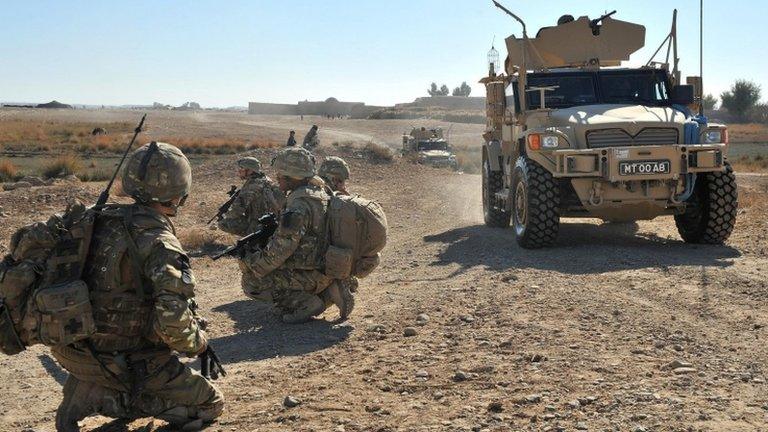Armed forces plans criticised as reservist recruitment stalls
- Published
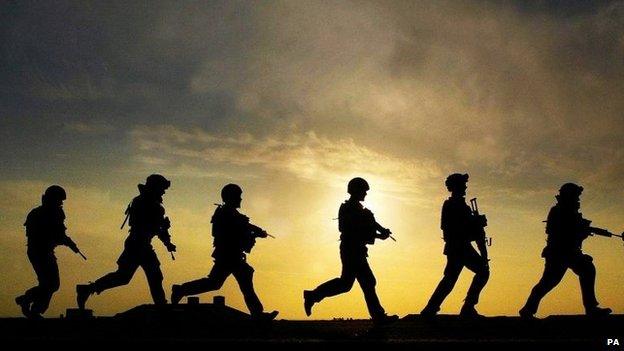
The total strength of the UK's armed forces has fallen below 200,000
The government's plans for the UK's armed forces have been labelled "a shambles" after the Ministry of Defence published recruitment numbers.
The number of reservists rose by 400 (1.8%) over the past year to 22,450.
It comes in the first year of a five-year project to increase reserves to offset cuts to the regular forces.
Labour said the increase was "woefully low" and one Tory MP called for a rethink but the government said the project was making "steady progress".
'False economies'
The 2010 strategic defence and security review set a target of reducing the UK's armed forces, including reserves, to 142,000 by 2020. The figure fell from 205,850 to 195,980 in the year to October.
The plan includes cutting the size of the Army from 102,000 to 82,000 over 10 years.
The MoD's figures showed that since October 2013 the number of reserves rose to 22,450 while regular full-time forces decreased by 9,710 to 146,980.
And they also showed the trained number of Army Reserve volunteers rose just 20 - from 19,290 in October 2013 to 19,310 a year later.
BBC defence correspondent Jonathan Beale says on current trends the Army will struggle to reach its target of doubling the size of the army reserves to 30,000 by 2018.
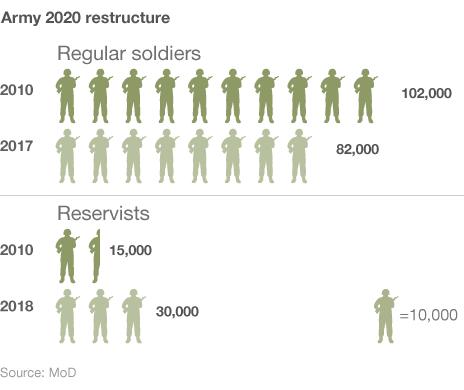
Conservative MP John Baron, a long-standing critic of the changes, called for a government rethink.
He said: "These latest figures confirm that plans to replace 20,000 regulars with 30,000 reservists are a shambles. Government attempts to get our defence on the cheap are on the ropes.
"The regulars have gone, yet the trained strength of the Army reserve has actually decreased since April 2013, despite media recruitment campaigns. This not only creates severe capability gaps but also false economies as the MoD throws more money at the problem.
"The government should now ditch this disastrous plan before more money is wasted. It is easier to recruit regulars than reservists, and the British army should be taken back up to 100,000 regulars. Recent international events should remind us of the need for strong defence."
Vernon Coaker, Labour's shadow defence secretary, said the increase of 20 trained Army Reserves in the last year was "woefully low and contrasts starkly with David Cameron's pledge to recruit 30,000 Army Reserves by 2018".
"It's clear that these plans are failing and there is a real concern that Britain's armed forces could be left with a dangerous capability gap as a result."
'Early glitches'
Reserves minister Julian Brazier said: "We have always recognised that reinvigorating our reserve forces would not be achieved overnight. However, one year into our five-year plan we are making steady progress and seeing increased numbers joining the reserves."
On Sunday, Chief of the Defence Staff, General Sir Nicholas Houghton, said there had been some "early glitches" in the attempt to recruit 30,000 Army reservists to plug the gap left by regular troops.
Sir Nicholas said the numbers recruited to date were not as high as hoped - but added: "There's much to be confident about; our numbers are growing."
The Army reserves will receive more training and increased opportunities for promotion in exchange for having to make a greater commitment to regular training and deployment. Reservists' training days will increase from between 19 and 27 days a year to 40.
A government White Paper published in July 2013 outlined various changes, including increased payments for reservists and £500 a month for small businesses while their staff are away on military deployments.
- Published9 November 2014
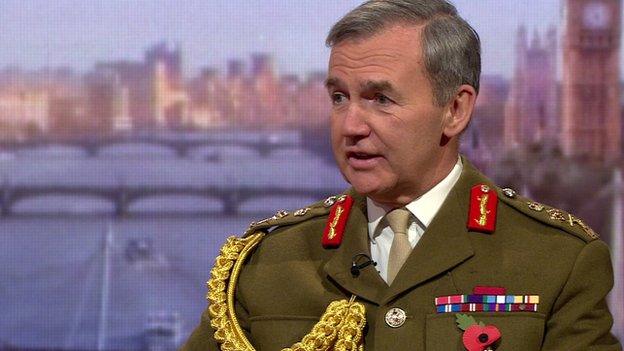
- Published27 October 2014
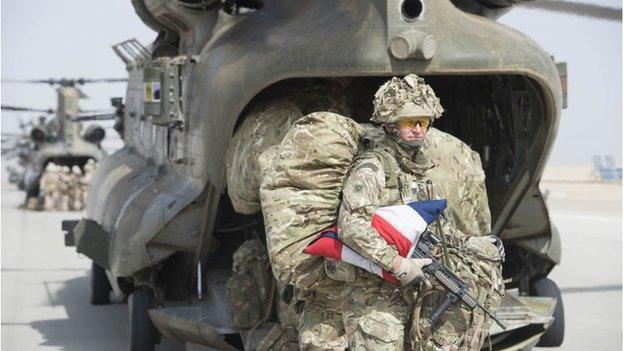
- Published3 July 2013
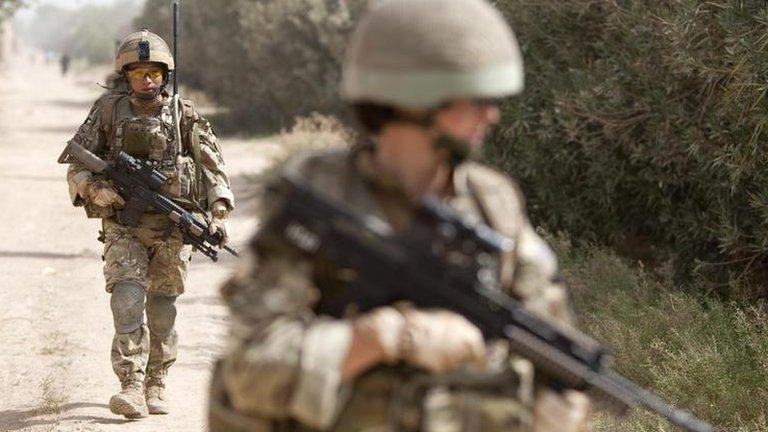
- Published5 July 2012
